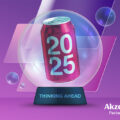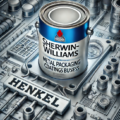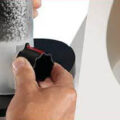The American chemical company Eastman has developed Tetrashield™, a protective resin system designed for metal packaging coatings that responds to the growing regulatory demands regarding the use of bisphenol A (BPA) in the food industry.
The new technology forgoes materials considered concerning, such as BPA, without compromising the performance or durability of the cans. According to the company, Tetrashield allows maintaining the resistance, corrosion protection, and shelf life of the packaging, guaranteeing both the economic viability of the manufacturers and their reputation in terms of safety and sustainability.
Its main advantages include greater resistance to sterilization, thanks to its high glass transition temperature; better hydrolytic stability that reinforces anticorrosive protection; and greater flexibility and hardness to withstand the drawing and closing processes. All of this offers, according to Eastman, a superior performance balance compared to other commercial systems.
In addition to technical innovation, the company offers specialized advice to adapt Tetrashield formulations to different types of packaging, such as deep-drawing cans, easy-open lids, or jars with twist-off closures, including those intended for foods with a high sulfur content or that are difficult to preserve.
With this development, Eastman reinforces its commitment to sustainability and food safety, providing an effective alternative to traditional coatings and accompanying manufacturers in the transition towards BPA-free materials that are compatible with new international regulatory standards.










